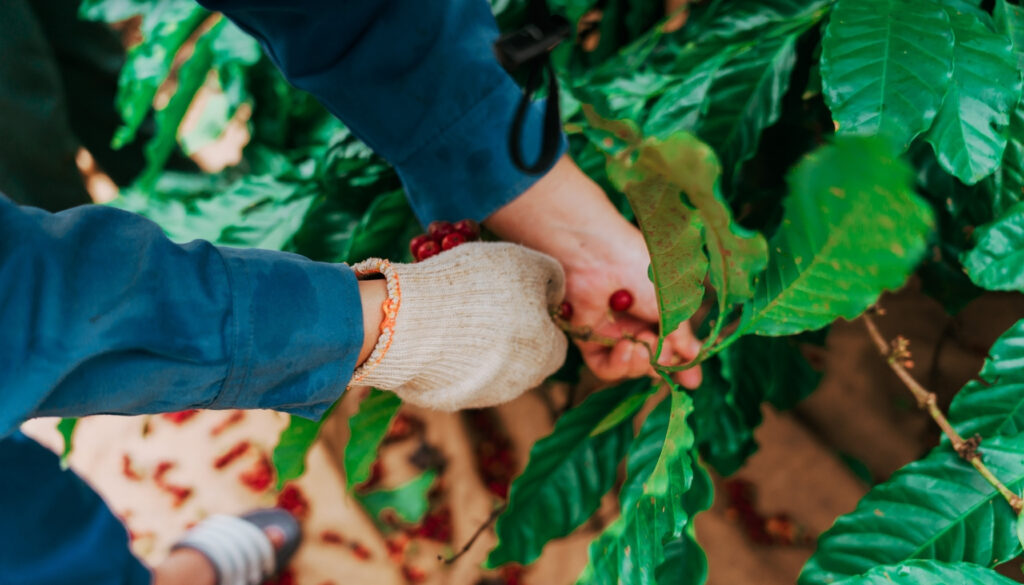Coffee has become an integral part of our daily lives—a rich, aromatic ritual that many indulge in. Yet, behind every cup of coffee lies a complex world of cultivation, often dominated by unsung heroes who significantly shape the industry: women and indigenous communities. These groups not only cultivate the world’s finest coffee beans but also preserve techniques, traditions, and cultures that elevate coffee to an art form. In this article, we will delve into their stories, contributions, and the integral roles they play in the realm of coffee cultivation.
1. The Heartbeat of Coffee Farms: Women
Women have historically played a vital role in coffee farming; their contributions, however, often go unnoticed. Across the globe, women contribute significantly to the labor force in coffee cultivation, engaging in everything from planting seeds to harvesting cherries and processing them. Recognizing their efforts is essential for understanding the coffee industry as a whole.
In many regions, women comprise a substantial percentage of the coffee workforce. For instance, in countries like Ethiopia, women are responsible for 70% of the coffee labor force. Despite this, their contributions remain largely unrecognized, resulting in systemic barriers that hinder their access to resources, support, and recognition.
Empowering Women in Coffee Cultivation
Empowerment through education is a crucial aspect of transforming women’s roles in coffee farming. Training programs focused on agronomy, business skills, and marketing enable women to take on leadership roles within their communities. These initiatives not only help women gain financial independence but also enhance the overall quality and sustainability of coffee production.
Moreover, cooperative models that include women as equal decision-makers amplify their voices. When women lead cooperatives, they are more likely to implement changes that benefit their communities, from improved farming techniques to better market access. This empowerment ultimately leads to greater economic stability and fosters a sense of community.
2. Indigenous Knowledge and Practices
Indigenous communities possess invaluable traditional knowledge about coffee cultivation. Their intimate understanding of biodiversity and local ecosystems enables them to grow coffee sustainably. This rich heritage often goes unrecognized, yet it forms the backbone of many coffee-growing regions.
Indigenous practices emphasize sustainable farming, allowing communities to cultivate coffee that thrives in harmony with nature. For example, shade-grown coffee, a technique favored by many indigenous farmers, not only contributes to the flavor profile of the beans but also preserves the local ecosystem. This method protects biodiversity, supports soil health, and enhances water conservation.
The Importance of Cultural Preservation
Preserving traditional farming methods is critical for safeguarding biodiversity and sustaining the coffee industry. Many indigenous communities are custodians of unique coffee varietals, playing a vital role in maintaining genetic diversity. This diversity is crucial for developing coffee resistant to diseases and climate change, ensuring the future of coffee cultivation.
Furthermore, the cultural practices associated with coffee production, such as ritualistic ceremonies and social gatherings, enrich the coffee experience. Acknowledging and respecting these traditions fosters a deeper appreciation for the journey of the coffee bean from farm to cup.
3. The Journey of the Coffee Bean
Understanding coffee cultivation begins with the journey of the coffee bean. From seed to cup, the process is intricate and involves numerous steps. Farmers nurture the coffee plants, aware that their meticulous care directly influences the flavor and quality of the beans. Women, often responsible for this nurturing, embody the dedication required to produce exceptional coffee.
Stages of Coffee Cultivation
- Seed Selection: The journey begins with selecting high-quality seeds. Farmers must consider factors such as the microclimate, altitude, and soil type when choosing seeds. Women often play a crucial role in this process, utilizing their knowledge of local conditions.
- Planting: Once the seeds are selected, they are planted in nurseries to promote healthy growth. Women engage in this phase, ensuring that the young plants receive the care and attention they need to thrive.
- Maintenance: Regular maintenance includes watering, weeding, and protecting the plants from pests. Women’s dedication and hard work during this phase are pivotal to the coffee plants’ development.
- Harvesting: When the coffee cherries ripen, it’s time for harvesting. This labor-intensive process requires skill, as only ripe cherries produce the best coffee. Women often form the backbone of the harvesting process, showcasing their labor and expertise.
- Processing: After harvesting, the cherries undergo processing, which involves removing the pulp and drying the beans. Women frequently utilize traditional methods that enhance the flavor and quality of the coffee, reflecting cultural practices passed down through generations.
4. Diversity in Coffee Cultivation
The diversity of coffee beans is remarkable. Arabica and Robusta are the two main types, but within these categories, various cultivars thrive. Each cultivar’s distinct flavor profile hinges on cultivation methods and environmental factors. This diversity stems from both indigenous practices and women’s contributions, as each community brings unique planting methods and outcomes.
The Role of Terroir
Terroir, a French term that refers to the environmental conditions in which coffee is grown, is crucial for developing unique flavor profiles. Factors such as soil composition, altitude, and climate contribute to the overall taste of coffee. Women and indigenous farmers often possess deep knowledge of their local terroir, allowing them to make informed decisions about cultivation practices that enhance flavor.
Celebrating Varietals
Celebrating the various coffee varietals is essential for fostering appreciation within the coffee community. Unique flavors derived from specific regions often tell the story of the land and the people who cultivate it. Highlighting these stories encourages consumers to seek out diverse coffees and support the farmers behind them.
5. Sustainability and Ethical Practices
Sustainability in coffee cultivation is not just a trend; it’s essential for the planet and the communities involved. Women and indigenous farmers are often at the forefront of these sustainable practices. By implementing organic farming techniques, they protect biodiversity, ensuring that future generations can enjoy quality coffee.
Organic Farming Techniques
Organic farming emphasizes ecological balance, avoiding synthetic fertilizers and pesticides. Women often lead the charge in adopting organic practices, advocating for methods that preserve the environment and promote health. These practices can generate higher-quality coffee, appealing to consumers seeking ethically sourced products.
Community Impact
Sustainable practices have a ripple effect on local communities. By prioritizing environmental health, women and indigenous farmers contribute to clean water, healthy soil, and diversified ecosystems. In turn, these factors benefit their communities by supporting agricultural stability and food security.
6. Education and Empowerment
Empowering women through education in coffee farming enhances the entire industry. Programs that provide training in agronomy, business, and marketing skills enable women to take leadership roles within their communities. This transformation leads to improved quality and increased sustainability of coffee production.
Training Programs
Various organizations and initiatives focus on providing women with opportunities for education and training in coffee farming. These programs equip women with the knowledge they need to make informed decisions in their farming practices. Leadership training also empowers women to advocate for their rights and the needs of their communities.
The Ripple Effect of Education
Investing in education for women leads to a ripple effect, benefiting entire communities. Educated women are more likely to invest in their children’s education, leading to better opportunities for future generations. This cycle of empowerment creates long-term benefits for the coffee industry and society as a whole.
7. The Role of Cooperatives
Cooperatives provide a platform for women and indigenous farmers to work together, sharing resources and knowledge. These collaborative efforts lead to better prices for their coffee and foster community development. As a result, cooperatives become essential in advocating for the rights and recognition of women within the industry.
Benefits of Cooperative Models
Cooperatives allow farmers to pool their resources, enhancing their bargaining power in the market. This collaboration not only benefits individual farmers but also strengthens community ties. Working together, women and indigenous farmers can share best practices and innovative techniques, ultimately improving the quality of their coffee.
Advocacy and Representation
Through cooperatives, women gain a voice in decision-making processes that affect their livelihoods. They can advocate for fair trade practices, environmental sustainability, and social justice. By collectively addressing these issues, cooperatives empower women to drive change within the coffee industry.
8. The Impact of Climate Change
Climate change poses significant challenges for coffee cultivation, affecting both women and indigenous communities. These groups often rely on traditional practices, but changing weather patterns require adaptation. Their resilience, however, showcases their deep connection to the land and their ability to innovate for the future.
Adapting to Change
As temperatures rise and weather patterns shift, farmers must adapt their practices to ensure successful coffee cultivation. Women and indigenous farmers are often at the forefront of these adaptations, utilizing their knowledge of local ecosystems to develop innovative solutions. For example, planting shade trees can help mitigate the effects of rising temperatures while preserving biodiversity.
Building Resilience
Building resilience within coffee-growing communities is crucial for long-term sustainability. Education and access to resources enable farmers to diversify their crops, reducing dependence on coffee alone. Additionally, fostering community support networks allows farmers to share knowledge and strategies for coping with climate challenges.
9. Traditional Processing Methods
The methods used to process coffee significantly impact flavor. Traditional techniques, often employed by women, involve drying and milling coffee cherries. These methods not only highlight the quality of the beans but also reflect cultural practices that have been passed down through generations.
The Art of Processing
Processing coffee is an art form that requires patience and skill. Techniques such as sun-drying and wet milling can influence the final flavor profile of the coffee. Women often preserve these traditional methods, ensuring that the quality of the coffee reflects their hard work and dedication.
Celebrating Local Flavors
Highlighting the unique flavors produced through traditional processing methods can attract consumers who appreciate artisanal coffee. This appreciation fosters a deeper connection between consumers and producers, celebrating the stories behind each cup.
10. Celebrating Coffee Culture
Coffee is not merely a beverage; it is a culture. Women and indigenous communities shape this culture through their unique traditions and rituals surrounding coffee. From communal brewing methods to ceremonial practices, these cultural expressions add depth and meaning to every cup.
Cultural Heritage
Understanding the cultural heritage surrounding coffee enhances our appreciation for this beloved drink. Celebrations, gatherings, and rituals often center around coffee, providing a glimpse into the values and traditions of various communities. By recognizing these cultural aspects, we enrich our coffee experience.
Community Engagement
Engaging with local coffee cultures fosters a sense of community among coffee lovers. Participating in events that celebrate coffee—such as tastings, workshops, and festivals—creates opportunities for connection and understanding between consumers and producers.
11. The Luxury of Exclusivity
As coffee connoisseurs seek out rare and exclusive beans, the stories behind these coffees often reveal the contributions of marginalized groups. Exceptional coffees sourced from women-led farms or indigenous communities carry with them narratives of resilience, passion, and tradition. This exclusivity enhances the luxury experience for coffee lovers.
Specialty Coffee Market
The specialty coffee market thrives on unique stories and origins. Consumers increasingly seek out coffees that offer a narrative—especially those that highlight the efforts of women and indigenous farmers. This trend not only promotes ethical sourcing but also supports the livelihoods of these communities.
Creating Unique Offerings
Roasters and retailers can capitalize on this demand by curating selections that tell the stories of their producers. Offering limited-edition coffees or spotlighting specific farms can create a sense of exclusivity while honoring the contributions of women and indigenous communities.
12. Fair Trade and Pricing
Fair trade practices aim to provide equitable compensation for coffee producers, including women and indigenous farmers. By supporting fair trade, consumers contribute to sustainable livelihoods that empower these communities and enhance the quality of life for families involved in coffee cultivation.
The Importance of Fair Trade
Fair trade certification ensures that farmers receive a fair price for their products, promoting economic stability and community development. This model enables women and indigenous farmers to invest in their farms and improve their quality of life, ultimately benefiting the entire community.
Consumer Choices Matter
Consumers play a crucial role in the success of fair trade practices. By choosing to buy fair trade coffee, they support ethical sourcing and encourage companies to prioritize equitable practices. This conscious consumerism can drive change within the industry.
13. Global Recognition
In recent years, the hard work of women and indigenous communities has begun to attract global attention. Awards such as the Best Coffee Awards or the Cup of Excellence highlight exceptional growers and processors, emphasizing their critical roles in developing superior coffee. Recognition motivates further investment in these communities.
Celebrating Achievements
Celebrating the achievements of women and indigenous farmers helps elevate their status within the coffee industry. Recognition creates opportunities for networking, collaboration, and access to resources, ultimately fostering growth and innovation.
Inspiring Future Generations
Spotlighting successful women and indigenous coffee producers serves as inspiration for others. By showcasing their journeys, we inspire the next generation of farmers to pursue their passions and contribute to the coffee industry. Highlighting diverse voices promotes an inclusive future for coffee cultivation.
14. The Future of Coffee Cultivation
As the coffee industry evolves, the inclusion of women and indigenous voices becomes more critical. Future developments will likely center around their innovative practices and solutions to challenges such as climate change, market access, and sustainability.
Embracing Innovation
The future of coffee cultivation depends on embracing innovative practices and new technologies. Women and indigenous farmers are well-positioned to lead this change, drawing on their traditional knowledge while incorporating modern advancements.
Collaborative Efforts
Collaboration among farmers, researchers, and industry stakeholders is essential for building a sustainable future for coffee cultivation. By working together, they can develop strategies that address shared challenges, ensuring the longevity of coffee farming.
15. Exploring Flavor Profiles
The flavor of coffee is complex, influenced by a myriad of factors, including cultivation methods, processing, and terroir. Women and indigenous farmers contribute to this complexity through their unique practices and local knowledge, ultimately crafting flavors that reflect their heritage.
Taste and Terroir
Understanding terroir is key to appreciating the diverse flavor profiles of coffee. Women and indigenous farmers often possess deep knowledge of their local conditions, allowing them to produce coffee that expresses the characteristics of their environment.
Crafting Unique Experiences
Coffee enthusiasts can explore the depth of flavors by learning about the origins and processing methods of specific coffees. Engaging with producers and understanding their practices enriches the tasting experience and fosters a deeper connection to the beverage.
16. The Influence of Technology
Technology offers new opportunities for women and smallholder farmers in coffee cultivation. Access to mobile apps, weather forecasting, and e-commerce platforms enhances their ability to compete in the global market. Embracing technology can lead to improved practices and increased recognition for their contributions.
Digital Tools for Farmers
Digital tools provide access to valuable information about market trends, weather patterns, and best practices. Women and indigenous farmers can leverage these resources to make informed decisions that enhance their productivity and profitability.
Building Online Presence
Establishing an online presence allows farmers to connect directly with consumers, promoting their unique stories and products. By utilizing social media and e-commerce, farmers can bypass traditional distribution channels and reach a global audience.
17. Coffee Tourism
Coffee tourism has gained popularity, allowing enthusiasts to experience coffee cultivation firsthand. Tours often highlight the stories of women and indigenous communities, providing visitors with a deeper appreciation for their hard work and dedication.
Engaging Experiences
Participating in coffee tours offers consumers an opportunity to learn about the cultivation process while engaging with the people behind the coffee. Visitors can witness traditional practices, participate in coffee harvesting, and enjoy tasting sessions, deepening their connection to the beverage.
Supporting Local Economies
Coffee tourism benefits local economies by providing income for farmers and creating opportunities for community development. By supporting ethical and community-oriented tourism initiatives, consumers contribute to the livelihoods of women and indigenous farmers.
18. Beyond the Bean: Health Benefits of Coffee
Coffee has potential health benefits that extend beyond its rich flavor. Studies suggest that coffee consumption may reduce the risk of certain diseases, including Parkinson’s and diabetes. Understanding the journey of the coffee bean—from cultivation to consumption—can enhance our enjoyment and appreciation of this beloved beverage.
Coffee and Well-being
The health benefits associated with coffee consumption highlight the importance of quality in coffee farming. Women and indigenous farmers who prioritize sustainable and organic practices contribute to producing high-quality coffee that retains its beneficial properties.
Promoting a Holistic Approach
Encouraging a holistic approach to coffee consumption—one that values health, sustainability, and community—can enhance the overall coffee experience. Understanding the origins of coffee and the efforts of those who produce it invites consumers to appreciate each cup on a deeper level.
19. How to Support These Communities
Consumers have the power to make a difference. By choosing to support brands that emphasize ethical sourcing, fair trade practices, and community development, coffee lovers can contribute to the empowerment of women and indigenous farmers in coffee cultivation.
Make Informed Choices
Researching coffee brands and their sourcing practices allows consumers to make informed choices. Support companies that prioritize fair trade and sustainable practices, ensuring that their purchases contribute to positive


